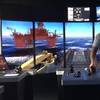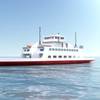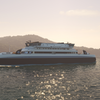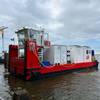The Expense of New MARPOL Regulations
The Presidential Decree 979 and Marine Pollution Decree of 1976 were intended to protect marine and coastal elements from maritime pollution, yet due to their generality and datedness today, they are no longer efficient at regulating current environmental issues. For this reason, new MARPOL Annex VI legislation was introduced in 2005 and updated in 2010 to restrict further emissions in the emission control areas (ECAs).
With talks of further regulations being rolled out in 2015 and 2020, the maritime industry is facing the harsh reality that avoiding fuel costs by compromising quality is no longer acceptable. In fact, from January 1, 2015 ships travelling the ECAs are forbidden from burning any fuel with a sulphur content of more than 0.1%, which is a 10% decrease from current limits.
Such a harsh crackdown on emissions from the shipping industry is to be expected, with it being responsible for 3% of global greenhouse gas emissions and one ship constituting more sulphur dioxide (SO2) than 50m cars.* Yet the problem faced by many shipping companies is the increase in cost in order to be environmentally conscious.
The burning of distillate fuels as opposed to the Heavy Fuel Oil (HFO) used today has been proposed as an option for ships to cut down their emissions. However, this is believed to be priced over $300 per metric ton above what guilty shipping companies are paying at the moment.
The other alternative to burning distillate fuels is the use of scrubbers, or ECGs. These use technology using sea water to neutralize the sulphur oxides in the exhaust gases, so work as purifiers in a sense. This is a more affordable option compared to the distillate fuels as it allows the use of cheaper fuels whilst still abiding by the MARPOL regulations.
To ensure that ships are abiding by MARPOL legislation it is recommended that they invest in emission monitoring technology, at least when operating in ECAs. Developments in technology means that emission monitoring can now be operated electronically, therefore requiring no additional labor costs to run whilst still providing accurate and verifiable data collection and reporting. It is also possible to make real time amendments to the operating of the ship through fitted emissions monitoring technology which potentially allows the management team to save on fuel and therefore gas emissions.
So although the initial response to new MARPOL legislation is concern for the additional cost for companies working in the maritime industry, there are ways around such steep prices for distillate fuels. The use of scrubbers and emission monitoring technology is a far cheaper alternative, and is in fact recommended on all ships, regardless of whether they work in ECAs or not. Yet, they will soon be mandatory when the new regulations are implemented
*Peter Boyd, Chief Operating Officer Carbon War room, Sourced: theguardian.com/sustainable-business/2014/aug/01/sustainable-shipping-is-making-waves
Source: Procal
procal.com










